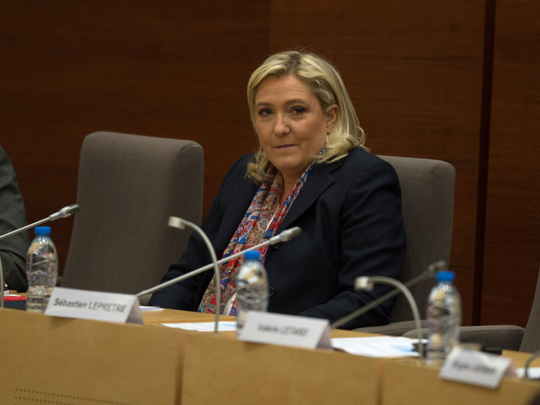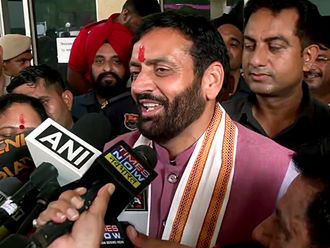
The widely discounted socialist debacle in last month’s regional polls in France was not as dramatic for the Socialist Party (PS). It surely lost the control of many regions, but stood firm elsewhere. Quite efficiently, French Prime Minister Manuel Valls played again the worn-out concept of ‘Republican Front’ against the right-wing National Front (FN) of Marine Le Pen — and again, it worked. It is how two prominent members of former French President Nicolas Sarkozy’s Les Republicains Party (LR) were elected in the North and the South-East with the support of socialist votes, allowing them to beat simultaneously FN candidates Marine Le Pen and Marion Marechal Le Pen.
Everyone knows this deadly political move tends to wipe out differences between the PS and LR, thus opening up an avenue to the National Front as ‘a main opponent’ to the socialists. But a seat is worth a trick.
Despite often coming first in the first round, the FN is consequently leading in no regions — a situation already prevailing in parliament, where France’s largest party is hardly represented. Yet the FN is now supported by more than six million voters, a share equal to one of each of the PS and the LR. The French political scene is therefore divided into three forces of equal size — but one is ostracised. Worse, in a political system such as the French one, one party should ally with the other to defeat the third — and nobody would take the risk to ally with the FN; or be strong enough to defeat the two others, hence becoming a credible alternative to Marine Le Pen. If one adds that only two candidates will be allowed to run for the second round of elections in the May, 2017, Presidential elections, it shows where the challenges are. 2016 will thus be a year of preparation, and first strategies are emerging.
To start with, let’s assume, as it is taken for granted by most observers, that Marine Le Pen will win the first round and be entitled to run for the second. The candidate arriving third will be eliminated, and one can only wonder who from the PS and the LR will beat the other one.
On the socialist side, it is no mystery that French President Francois Hollande will run again. His ‘leftist side’ was laminated last month, together with the Green’s. There will be attempts to make him go through an internal ‘primary’ election, but his savoir-faire will help him avoid it. Together with Valls, Hollande has initiated a wide move towards the Centre and will progressively swallow those who are ready for all kinds of compromise — still of course, hiding themselves behind the ‘holy’ war ‘against the National Front’ — a rather enormous trick, but the bigger it is, the better it works.
On the LR side, the situation is more complex. Once again, Sarkozy lost his bet for a trouncing victory in the regional polls, but he will not withdraw. He just can’t, as he already showed in the past. However, and most unfortunately for him, the French people reject him, and a significant share of his own party doesn’t trust him anymore. He only enjoys the support of hardcore fans, who may help him indeed win the primary election (a contest planned for September, 2016, between him, and former MPs Alain Juppe and Francois Fillon), but not the whole election process.
Likely scenario
Opinion polls last month showed that any candidate running for the right would win against Hollande. Last week and for the first time, it appeared that Hollande could make it against Sarkozy, and be the one to face Le Pen in the second round. It is unlikely this will make Sarkozy change his mind and therefore, either Sarkozy wins the primary and, as likely, a Centre candidate also runs, with a foreseeable conclusion that both will arrive behind Hollande; or Juppe makes it, with a serious chance to beat Hollande, and then Le Pen, but what if his programme goes increasingly along the same lines of a revamped PS? Or, lastly, if Fillon makes it, he is the only one to have an articulated programme for genuine reforms; but the odds are not currently in his favour.
This is why the likely scenario today remains a battle between Le Pen and Hollande, and a successive victory for the later — a rather awkward situation in view of the poor record of the PS and an overwhelming majority for the right in France, who deserved better than a fight between populism, and failure as a track record. The only alternative is for the LR to finalise a programme of reforms enabling limited public spending, restoring law and order, enhancing the national education system and putting everybody back to work, starting with the youth, thanks to a revamped training policy. But until now, too many candidates have limited their vision to hindering the FN in lieu of a policy. It may work another time in 2017, but time is known to always take its revenge.
Luc Debieuvre is a French essayist and a lecturer at Iris (Institut de Relations Internationales et Strategiques) and the Faco Law University of Paris.








